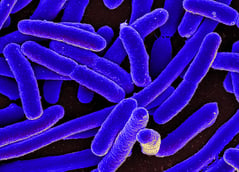 The human microbiome is a complex system of bacteria that live and interact in different tissues and organs throughout the body. This complex system is a growing area of focus for life science researchers looking to learn more about these interactions and functions. In order to help its researchers in this rapidly expanding field, Columbia University in New York has established both a working group and a new core facility to help increase research potential of the microbiome.
The human microbiome is a complex system of bacteria that live and interact in different tissues and organs throughout the body. This complex system is a growing area of focus for life science researchers looking to learn more about these interactions and functions. In order to help its researchers in this rapidly expanding field, Columbia University in New York has established both a working group and a new core facility to help increase research potential of the microbiome.
Recent Posts
Tags: Northeast, microbiome, New York, Columbia University, Columbia, Research, NY, Columbia University Medical Center, 2016, BioResearch Product Faire, CUMC
 Neuroscience is an ever-expanding life science field. There is so much still unknown about the brain and diseases that affect it, and scientists are constantly performing research and publishing new findings. Diseases such as Alzheimer's, which affects memory and causes behavioral problems, are continually being investigated with the ultimate goal of finding a cure and creating new treatment methods. Recently, a team of researchers found a connection between the memory loss associated with Alzheimer's Disease and certain inflammatory cells in the brain.
Neuroscience is an ever-expanding life science field. There is so much still unknown about the brain and diseases that affect it, and scientists are constantly performing research and publishing new findings. Diseases such as Alzheimer's, which affects memory and causes behavioral problems, are continually being investigated with the ultimate goal of finding a cure and creating new treatment methods. Recently, a team of researchers found a connection between the memory loss associated with Alzheimer's Disease and certain inflammatory cells in the brain.
Tags: CA, Southwest, Alzheimer's Research, Neuroscience, Irvine, BRPF, UCI, UC Irvine, 2016, BioResearch Product Faire, Alzheimer's Disease, Inflammatory Cells, West Coast, Microglia
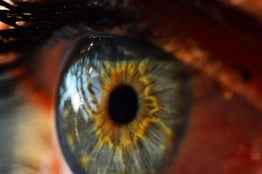 The University of California, Davis Medical Center is one of the best in the country. It is comprised of the UC Davis Cancer Center, a medical school, the MIND (Medical Investigation of Neurodevelopmental Disorders) Institute, the Eye Center, and other important research facilities. Recently, the medical center received a generous donation to aid their research.
The University of California, Davis Medical Center is one of the best in the country. It is comprised of the UC Davis Cancer Center, a medical school, the MIND (Medical Investigation of Neurodevelopmental Disorders) Institute, the Eye Center, and other important research facilities. Recently, the medical center received a generous donation to aid their research.
Tags: CA, University of California Davis Medical Center, Optics, Southwest, UCDMC, Sacramento, new funding, UC Davis, 2016, BioResearch Product Faire, Ernest E. Tschannen, eye center, West Coast
 Type 2 Diabetes, the most common form of Diabetes, affects nearly twenty-nine million Americans. Sufferers' bodies resist any insulin being produced, causing blood glucose levels to rise above normal. This condition is associated not only with hyperglycemia, but also with excess fat in skeletal muscles, although the actual cause of insulin resistance has not previously been known.
Type 2 Diabetes, the most common form of Diabetes, affects nearly twenty-nine million Americans. Sufferers' bodies resist any insulin being produced, causing blood glucose levels to rise above normal. This condition is associated not only with hyperglycemia, but also with excess fat in skeletal muscles, although the actual cause of insulin resistance has not previously been known. Tags: Northeast, University of Pennsylvania, UPenn, Diabetes, insulin resistance, Philadelphia, PA, 2016, BioResearch Product Faire, Type 2 Diabetes
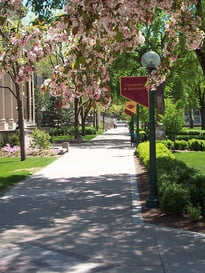 Research institutions around the country are continually expanding their research capabilities by constructing new research buildings and establishing new research departments, providing researchers with the ability to make advances on pressing research questions. USC recently established a new Translational Genomics Department and UPenn has opened a new Center for Advanced Cellular Therapeutics.
Research institutions around the country are continually expanding their research capabilities by constructing new research buildings and establishing new research departments, providing researchers with the ability to make advances on pressing research questions. USC recently established a new Translational Genomics Department and UPenn has opened a new Center for Advanced Cellular Therapeutics.
Tags: Midwest, University of Minnesota, Minnesota, MN, UMinn, Twin Cities, New research center, Microbiology Research Facility, 2016, BioResearch Product Faire
 When it comes to the brain, there is still so much that scientists don't know, like what causes certain diseases and how traits like memory and intelligence differ from brain to brain. Scientists in Illinois are currently making strides to understand the latter. A team of researchers from the University of Illinois, Urbana-Champaign, recently conducted a study that revealed that anatomical and cognitive factors in different brains are affected by different traits.
When it comes to the brain, there is still so much that scientists don't know, like what causes certain diseases and how traits like memory and intelligence differ from brain to brain. Scientists in Illinois are currently making strides to understand the latter. A team of researchers from the University of Illinois, Urbana-Champaign, recently conducted a study that revealed that anatomical and cognitive factors in different brains are affected by different traits.
Tags: Midwest, Scientists, University of Illinois Urbana-Champaign, Illinois, Neuroscience, UIUrbana, Research, IL, 2016, BioResearch Product Faire
 The University of Southern California is known around the world as being a leader in many fields, including life science research, and even has a separate campus dedicated to teaching and researching health sciences. With 6 basic science departments, 18 clinical departments, 7 research institutes, and dozens of research centers and programs, the Keck School of Medicine on the USC Health Science Campus is continuing to expand and increase life science capabilities. In 2015, the university opened a new $15 million Center for Pullmonary Research as well as a new $10 million Center for Convergent Bioscience.
The University of Southern California is known around the world as being a leader in many fields, including life science research, and even has a separate campus dedicated to teaching and researching health sciences. With 6 basic science departments, 18 clinical departments, 7 research institutes, and dozens of research centers and programs, the Keck School of Medicine on the USC Health Science Campus is continuing to expand and increase life science capabilities. In 2015, the university opened a new $15 million Center for Pullmonary Research as well as a new $10 million Center for Convergent Bioscience.
The ever-growing campus is adding a new department to its impressive list, with the recent establishment of a Translational Genomics Department to be located in the Harlyne J. Norris Research Tower on the USC Health Sciences campus.
Read MoreTags: CA, University of Southern California, Southwest, USC, Los Angeles, BRPF, 2016, BioResearch Product Faire, Translational Genomics
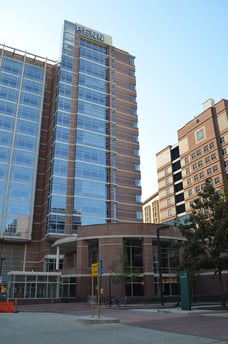
The University of Pennsylvania in Philadelphia is one of the top research institutions in the world and is continuously expanding its research potential. Last year, the university opened a new Prematurity Research Center with the support of a $10 million donation from the March of Dimes Foundation of Philadelphia. Earlier this year, the university teamed up with the pharmaceutical company Novartis to open a new center on campus dedicated to cancer research, called the Novartis-Penn Center for Advanced Cellular Therapeutics (CACT).
The Center for Advanced Cellular Therapeutics, which is located on the University of Pennsylvania Medical Campus, is a $27 million project that will provide new laboratory and clinical space for physicians and scientists working to develop personalized cellular therapies for cancer treatments.
Read MoreTags: Northeast, University of Pennsylvania, UPenn, cancer research, Philadelphia, BioResearch Product Faire Event, PA, 2016, Novartis, Center for Advanced Cellular Therapeutics, Cell therapy
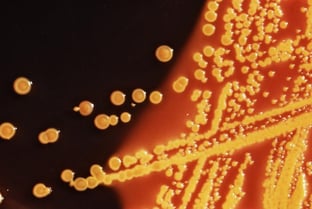
Escherichia coli, most commonly referred to as E. coli, is a common form of bacteria found in the environment, foods, and the intestinal tracts of animals. E. coli is very diverse, with some strains being harmless while others can cause a wide range of illnesses, including urinary tract infections, diarrhea, and pneumonia. With hundreds of thousands of deaths caused by E. coli each year, scientists have been diligently working to better understand this bacteria.
Read MoreTags: Northeast, Maryland, MD, Baltimore, University of Maryland, Baltimore, UMDBalt, BioResearch Product Faire Event, Front Line event, 2016, E Coli


